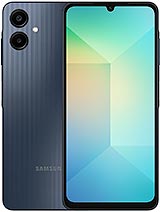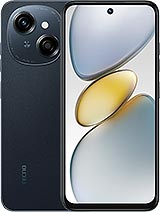iQOO Z10 Lite alternatives
Tap above to see alternatives.
Oppo K13 alternatives
Tap above to see alternatives.
iQOO Z10 Lite

iQOO Z10 Lite
-
Dimensity 6300
6 nm
-
6000 mAh
15W
-
6.74"
720 x 1600 pixels
-
50 MP
1080p@30fps
-
Specs

2x2.4 GHz Cortex-A76
6x2.0 GHz Cortex-A55
1x2.3 GHz Cortex-A720s
3x2.2 GHz Cortex-A720s
4x1.8 GHz Cortex-A520s
6GB 128GB (UFS 2.2)
8GB 256GB (UFS 2.2)
8GB 256GB (UFS 3.1)
Sony, f/1.8, (wide), PDAF
2 MP
depth
f/1.9, 27mm (wide), 1/2.88", OmniVision OV50D40, PDAF
2 MP
f/2.4, (depth)
1080p@30/60/120fps
f/2.2, (wide)
f/2.5, 23mm (wide), 1/3.0", 1.0µm, Sony IMX840
SIM1: Nano, SIM2: Nano
SIM1: Nano, SIM2: Nano
9 5G bands
n1, n3, n5, n8, n28, n38, n40, n77, n78
9 5G bands
n1, n3, n5, n8, n28, n40, n41, n77, n78
In this performance comparison, the Oppo K13 with its Qualcomm Snapdragon 6 Gen 4 (4nm) performs better than the iQOO Z10 Lite with the Mediatek Dimensity 6300 (6nm), thanks to superior chipset efficiency.
Both phones launched with Android 15 and will get updates until Android 17. Both phones are expected to receive security updates until around 2028.
Oppo K13 features a superior AMOLED display, while iQOO Z10 Lite comes with an LCD panel. In terms of smoothness, Oppo K13 offers a higher 120 Hz refresh rate, ensuring fluid scrolling and animations. Oppo K13 also boasts a brighter screen with 1200 nits of peak brightness, enhancing outdoor visibility. Notably, Oppo K13 offers a higher screen resolution, resulting in sharper visuals and more detailed content.
Oppo K13 features a larger 7000 mAh battery, potentially delivering better battery life. Oppo K13 also supports faster wired charging at 80W, compared to 15W on iQOO Z10 Lite.
Oppo K13 offers better protection against water and dust with an IP65 rating.
¹ Scores can vary even with the same chipset due to RAM, thermals, and software optimization.











